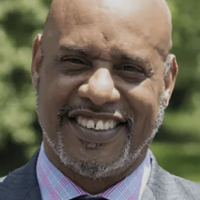Snellville RICO Act Lawyer, Georgia
Sponsored Law Firm
-
 x
x

Click For More Info:
-
The McReynolds Law Firm, PC
3799 Main Street #87012 College Park, GA 30337» view mapCriminal Defense Defending Your Rights
Let The McReynolds Law Firm, PC handle all your criminal defense needs.
800-919-4121
Not enough matches for Snellville RICO Act lawyer.
Below are all Snellville Criminal lawyers.
Dolly M. Fairclough
✓ VERIFIEDAccident & Injury, Criminal, Immigration, Divorce & Family Law
Dolly Fairclough has been licensed to practice law in Georgia for 17 years. Graduated from John Marshall in Atlanta.
Thomas Sterling Robinson
✓ VERIFIEDCriminal
Attorney Thomas S. Robinson, III, is an attorney with twenty-five years of experience in the criminal justice system. He is a graduate of Stanford Uni... (more)
S. Carlton Rouse
Felony, Misdemeanor, DUI-DWI, Personal Injury
Status: In Good Standing Licensed: 20 Years
FREE CONSULTATION
CONTACTLysander Allann Woods
Accident & Injury, Bankruptcy & Debt, Criminal, Immigration
Status: In Good Standing Licensed: 28 Years
FREE CONSULTATION
CONTACTKelly Kautz
Real Estate, Estate, Divorce & Family Law, Criminal
Status: In Good Standing Licensed: 22 Years
Veronica Higgs Cope
Motor Vehicle, Entertainment, White Collar Crime, Criminal
Status: In Good Standing
Kemay Lareine Jackson
Divorce & Family Law, Criminal, Landlord-Tenant, Traffic
Status: In Good Standing Licensed: 17 Years
Audrey C. Ogueri
Divorce & Family Law, Criminal, Traffic, Juvenile Law
Status: In Good Standing Licensed: 25 Years
 Jule McReynolds College Park, GA
Jule McReynolds College Park, GA AboutThe McReynolds Law Firm, PC
AboutThe McReynolds Law Firm, PC


